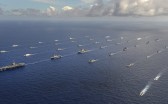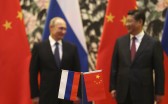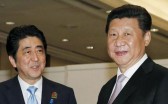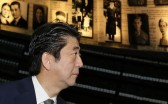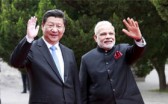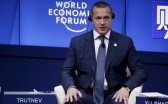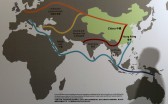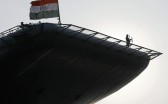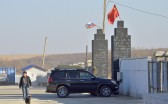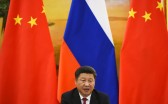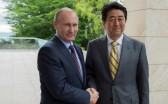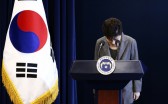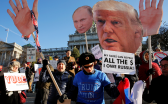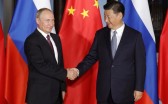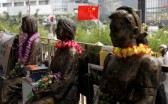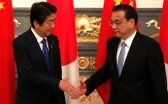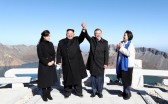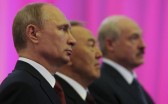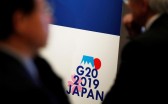Being chief diplomat is one of the many roles that the president plays under the Korean political system. The chief diplomat has been missing in Korea for months since a string of mysterious scandals have incapacitated Park from performing presidential roles. Many worry that her absence on the diplomatic stage, at a volatile time of geopolitical change, has done serious damage to national interests. With the election of Trump, geopolitical dynamics in the region are in a state of flux. While other national leaders are making their presence known by holding and participating in a number of diplomatic events, Park’s political life has been in a vegetative state. Despite legitimate concerns of many people in Korea, and also Korea’s key diplomatic partners, if Korea muddles through the crisis, the damage that this plight will do to the country’s diplomatic standing is going to be marginal.
There is no denying that summit diplomacy is an important part of a country’s diplomatic activity, but the role it plays is often exaggerated. Summit meetings rarely improve diplomatic relations when national interests are divergent and countries do not see eye-to-eye on key foreign policy issues. Summits boost confidence and cultivate trust, but only when convergence of interests is antecedent to summits or after countries work out their major differences. For instance, a summit meeting between President Kim Dae-jung and President George W. Bush at a very early stage of Bush’s presidency failed to deliver any positive outcomes because of their perceived divergent interests toward North Korea and China. It is true that Korea is not able to launch any new diplomatic initiatives because of the absence of the chief diplomat, but Park had already been a lame duck president before the scandal surfaced in October, and with a little more than one year remaining in her presidential term, proactive diplomacy was already unlikely. This predicament of Park placed Korea’s diplomacy in a perilous state, but the long years of Korea’s exposure to the region’s geopolitical vagaries and North Korea’s threats have compelled the country to establish a foreign policy and a national security “system” that seems to be satisfactorily performing most of its functions under the acting president and prime minister Hwang Kyo-ahn. In addition, these functions exhibited reasonable stability even in the earlier precedent for presidential impeachment in Korean political history. After the National Assembly voted for the impeachment of President Roh Moo-hyun in February 2004, Roh was incapacitated for nearly three months. But the alliance partnership with the United States survived, and the North Korean threat was properly deterred. It is not going to be much different this time either. The basic frame of Korea’s foreign relations with key diplomatic partners will remain intact, and the defense posture against North Korea’s threat will remain strong.
Despite many deficiencies in its politics, there is little doubt that Korea is the most dynamic democracy in Asia, and Korea’s fundamentals are surprisingly strong. This is even truer after the scandal and ensuing impeachment. What precipitated this scandal was a big disgrace on the part of Koreans, but how Korea responded has, so far, been graceful. Millions have poured into the streets of Seoul and marched to the very gates of the Blue House, but not a drop of blood has been shed. It was the relentless and peaceful candlestick vigils that put pressure on the National Assembly; impeachment was possible because its members, under pressure, hurried to vote it. Now that the Constitutional Court of Korea is contemplating the final verdict on the impeachment, removal or restoration of Park will be conducted within the constitutional framework, although Park found herself in trouble by operating outside of constitutional bounds. If the remaining procedures move along smoothly within legal boundaries, representative democracy will take on a new meaning in Korean politics. A series of political surprises that transpired in Korea in 2016 will add to the credentials of Korea as the most vibrant democracy in Asia. Korea’s democracy deserves respect from foreign counterparts.
The real threat to Korean foreign policy interests and democratic credentials would arise if politicians hijacked foreign policies to advance their parochial and factional political interests. There is already a sign that politicians are attempting to “impeach” several foreign policy decisions of the Park government. One prominent presidential hopeful from the opposition party during a press conference on December 15 suggested that Korea renege on its decision to deploy THAAD (Terminal High Altitude Area Defense). Also at risk are two deals with Japan: GSOMIA (General Security of Military Information Agreement) and the agreement on war-time sex-slaves euphemistically referred to as “comfort women.” These foreign policy decisions created a big stir, in large part, because the Park government was seen as having failed to exert sufficient effort to elicit domestic consent and also understanding from Korea’s concerned neighbors. The stance of the Park government on THAAD was misleading. From the very outset, the government should have presented THAAD deployment to China as a necessary measure that the South could take if threats posed by the North crossed a certain threshold. Instead, the government equivocated behind the dubious language of “3 noes”—no request from the United States, no consultation with the United States, and, hence, no decision to deploy. It appeared as if the decision to deploy was made in a fit of pique when Park was unable to reach Xi Jinping over the phone after the North’s 4th nuclear test. Efforts to rally popular support at home and understanding by China came too little and too late.
Park’s policy toward Japan could not have been more ill-advised. When Korea needed to adopt a two-track approach of separating historical issues from policies of mutual benefit, Park was persistent that Japan had to come clean about past history, including the sex-slave issue, to resume normal relations. Before the deal was reached in December 2015, Park had been adamant about not holding a summit with Abe, which reflected the failure of the Korean Ministry of Foreign Affairs (MOFA) to guide her into adopting a balanced approach toward Japan. Only when Park felt ostensible pressure from the United States did the government rush into the sex-slave deal with Japan, circumventing efforts to mobilize domestic consent. From a purely military perspective, sharing intelligence information with Japan through GSOMIA will augment the defense posture against the threats posed by North’s ever-increasing nuclear and missile capabilities. But, as with the deal on sex-slaves, Park was too quick to write off the domestic audience whose consent is a necessary condition for legitimate foreign policy making. President Lee Myung-bak’s attempt to sign GSOMIA with the former colonizer fell apart at the very last hour, because the secret handling of the politically sensitive issue encountered severe public backlash. That was 2012, and the Park government should have learned a lesson about not hastily pushing through such an agreement. Many people in Korea came to the impression that Park was trying to ride out the scandal by distracting the public’s attention. Notwithstanding apparent flaws in Park’s decision-making style, the succeeding government in Korea should not renege on agreements Korea entered into with its foreign counterparts. The damage done by the absence of summit diplomacy will be minimal and transient in nature, but repudiating promises Korea has made with key foreign counterparts would do irreparable damage to Korea’s diplomatic standing. Politicians should be reminded that Park was impeached for colluding with her enigmatic friend to usurp illicit money from conglomerates, not for her decisions on THAAD, GSOMIA, and the sex-slave agreement.
One important lesson that Korea should glean from the current backlash against Park’s controversial foreign policy decisions is that “foreign policy should begin at home,” to quote from a book by Richard Haass. Political leaders will have to put Korea’s house in order first, and then exert good faith efforts to mobilize popular consent at home to legitimize foreign policy decisions abroad. Any country, even a mature democracy, can tumble into the kind of political crisis that has been transpiring in Korea throughout 2016. But in the end, it is how you emerge from the crisis that matters most. Korea’s fundamentals are sound; its democracy is mature enough to turn negatives into positives. With crises at home and troubles abroad, 2016 has been another year of living dangerously. But 2016 is not going down in the annals of Korean history as the period of a foreign policy debacle, and it is highly unlikely that 2017 will either, if abrupt reversals of Park’s key foreign policy decisions are not made by those ready to conflate Park’s misbehavior.
